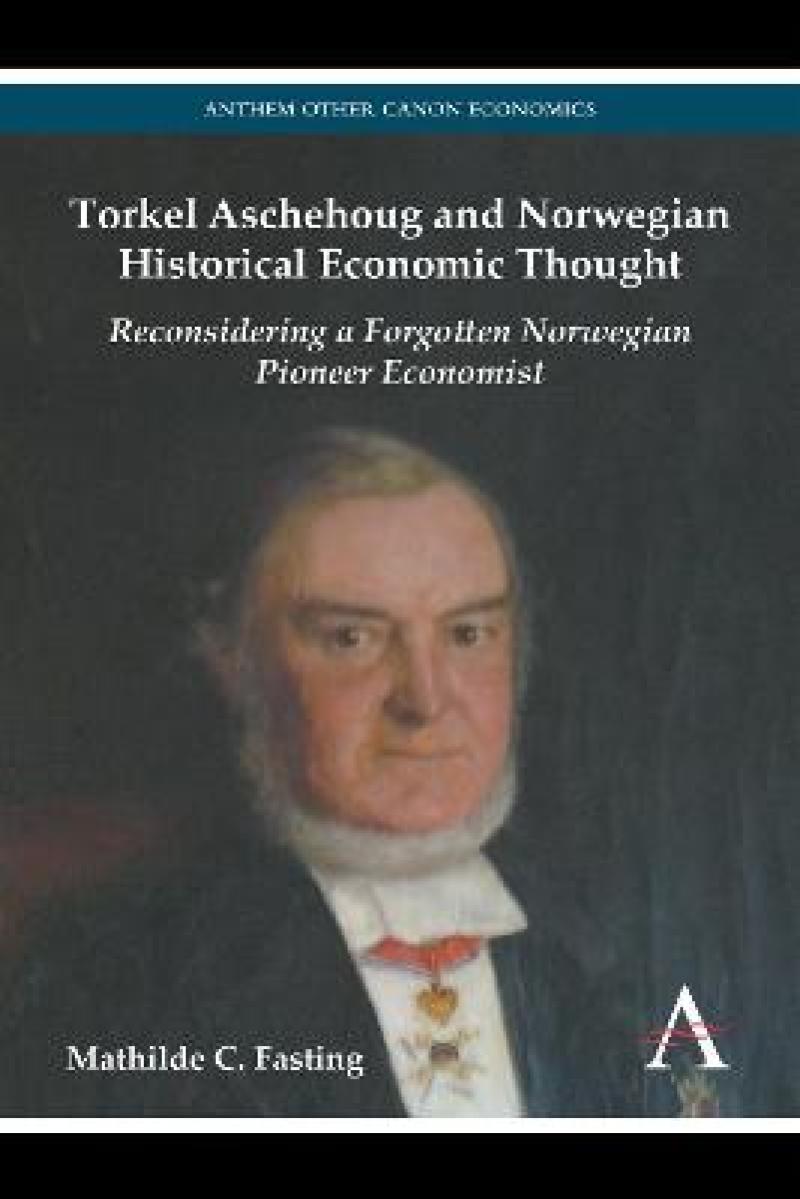The historical schools of economics have been neglected within the arena of economic theory since the Second World War in favour of the now-dominant classical and neoclassical schools of economic thought. As alternative frameworks re-emerge, this book offers a revaluation of the legal theorist, economist and politician Torkel Aschehoug (1822–1909) and his historical-empirical approach to economics, a highly influential current in Norway during the last decades of the nineteenth century.
This book explores the economic thought of prominent Norwegian legal theorist and politician Torkel Halvorsen Aschehoug (1822–1909) during the last decades of the nineteenth century, focusing on his historical-empirical approach to economics.
Acknowledgements; Chapter 1: Introduction; Chapter 2: Biography; Chapter 3: Norwegian Economic and Political Context in the Nineteenth Century; Chapter 4: Norwegian Economic Thought and Method; Chapter 5: Development of the Economic Thought of Aschehoug: Statsøkonomisk Forening and the ‘Socialøkonomik’ Project; Chapter 6: The German Historical School: Similarities, Influences and Discrepancies; Chapter 7: Alfred Marshall: Aschehoug and the Adoption of Marginal Theory; Chapter 8: The French Influence: Adopting Say and Refuting Socialism; Chapter 9: Views of Labour in the Work of Aschehoug; Chapter 10: The Entrepreneur: The Fourth Production Factor; Chapter 11: Trade and Customs Debates from 1840 to 1906 165;Chapter 12: The Theory of Economic Crises; Chapter 13: The Legacy of Aschehoug: Concluding Remarks; Appendix A: Other Norwegian Turn-of-the-Century Economists; Appendix B: Drafts for ‘Socialøkonomik’; Appendix C: Detailed Contents of ‘Socialøkonomik’ (First Editions from 1903 to 1908); Notes; Literature; Index
‘Mathilde C. Fasting’s book is a fascinating and highly readable account of the most influential economist in Norwegian intellectual life in the late nineteenth century. Fasting carefully traces and analyses the intellectual impulses behind Aschehoug’s thinking, making this book a valuable contribution.’ —Professor Einar Lie, University of Oslo
Explores the economic thought of prominent Norwegian legal theorist and politician Torkel Halvorsen Aschehoug (1822–1909) during the last decades of the nineteenth century, focusing on his historical-empirical approach to economics.
Produktdetaljer
Biografisk notat
Mathilde C. Fasting has just finished her doctorate in political science at the University of Erfurt, Germany.
